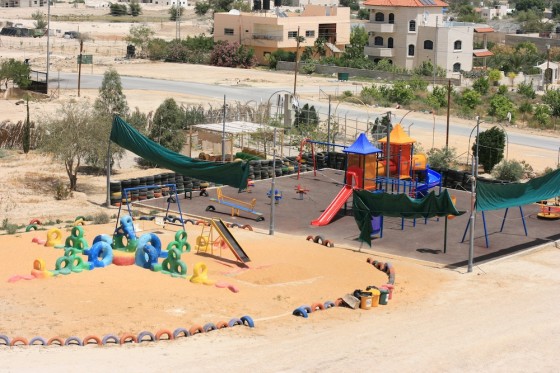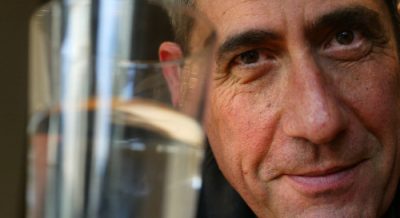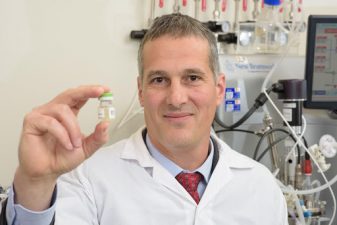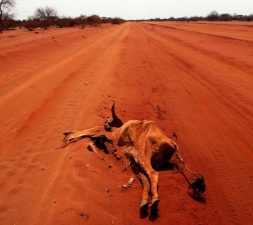 Green Prophet goes on another water trip with Friends of the Earth and guests from Sri Lanka.
Green Prophet goes on another water trip with Friends of the Earth and guests from Sri Lanka.
“Even sewage has a national flag,” said Gidon Bromberg, co-director and co-founder of Eco-Peace/Friends of the Earth Middle East (FoEME). Israel Director of the organization for 18 years, Bromberg says he’s seen how natural resources, like water, and even human waste, have become political tools in the Middle East regional conflict. A sewage treatment plant that was built for West Jerusalem, for example, does not treat the sewage from East Jerusalem. His goal: to use these very environmental tools to instead find common goals and connection and to build peace.
With water being one of the central environmental issues that the Middle East faces, Bromberg has also created Good Water Neighbors, a project of FoEME that focuses on shared use and protection of local water resources, like the Sea of Galilee, the Jordan River, and the Dead Sea.
Besides lobbying the government of Israel, Palestine and Jordan to stop diverting freshwater from the Galilee and to stop letting sewage spew into the Jordan River, the organization has built an environmental education center in the West Bank village of Auja, run by a local University of Bethlehem graduate, Fadi Jueejat. There Palestinian students learn about recycling of grey water and water conservation in a colorful center surrounded by a playground, benches made of recycled materials and old tires and an organic vegetable and herb garden.

The organization has gained international recognition for being an eco-peace project that uses water pollution issues to bridge national and religous divides. This Sunday, Good Water Neighbors hosted Dr. Vinya Ariyaratne, General Secretary of Sarvodaya, a Sri Lankan non-profit that is working to rebuild the war-torn North and East regions of Sri Lanka. The trip was funded by Tag, an international development non-profit that has helped Sarvodaya build an ecological education center very similar to the one in Auja.
“Any environmental hazard will eventually get to the groundwater,” said educator Gilat Partana to the assembled group on Sunday, which included Ariyaratne, his wife, son, daughter, and mother-in-law. Partana is an educator that directs Good Water Neighbors’ educational program in West Jerusalem. She, along with a counterpart in Jordan and in Palestine, has created a curriculum that encourages students to act like detectives and directly explore the water problems in their region, using some of the latest technology to map out environmental hazards and find their coordinates with a GIS system.
The children from East and West Jerusalem are then encouraged to meet one another, comparing the maps they’ve created and discussing together the joint environmental hazards.
“Maybe water and environment is just an excuse for breaking stereotypes,” she said. “Afterwards they are on facebook together.”
She explained that a third of Jerusalem’s sewage, mostly from the Eastern part, flows directly into the nearby valley where it is building up untreated and slowly contaminating the local ecosystem. Without coooperation from the Palestinian leadership, not much can be done.
 New playground in Auja
New playground in Auja
But with a heated Israeli-Palestinian conflict raging, issues of water and sewage often take a backseat, something Good Water Neighbors is fighting to change. In the current status quo, Israel takes 80% of the country’s freshwater, while only 20% flows to Palestine, accoding to Bromberg. Those numbers were decided in a temporary fashion at the Oslo Accords over 15 years ago, with the expectation that the figures would be renegotiated and Palestinians would eventually receive a modern water system like Israelis have. But when Oslo fell through, the numbers stayed put, something that is “shooting the interests of both people in the foot,” Bromberg said.
Currently, all West Bank water projects need approval from a joint Israeli-Palestinian water authority, but Bromberg is hoping to change that, claiming that any bilateral agreement could not possible by fair with one of the countries occupying the other. His organization has proposed a new accord that seeks to solve the water crisis even before a political agreement is reached. It includes a proposal for third-party oversight and other best practices that have been developed over the yers by neighboring countries around the world that have shared water resources.
Good Water Neighbors is currently active in 11 different Palestinian communities and is mostly receiving international funding. Local governments have been slow to fund the effort or to respond to its calls–although Israel did agree to stop letting sewage flow into the Jordan, an effort that should have the river (an increasingly important tourist attraction for religious Christians wishing to be baptized where Jesus was) cleaner over the coming years.
“It’s really exciting that these years of effort have really produced international interest in the work we’ve done,” Bromberg said.
All images credited to Adam Masser.




I was there throughout the water trip.Great Article!